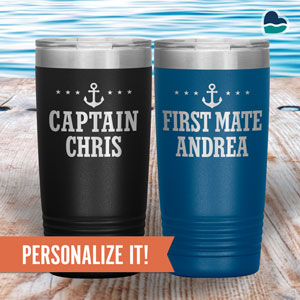Lake Kaniere, South Island, New Zealand
At 5,436 acres, Lake Kaniere is the second largest lake among the West Coast lakes of the South Island of New Zealand. With 12 miles of shoreline and water as deep as 640 feet, Lake Kaniere drains into the Tasman Sea via the Hokitika River and Kaniere River where there is a small hydroelectric station. The West Coast Region, which is known for its beautiful vistas, is…
Keep scrolling to read more.
Welcome to the ultimate guide to Lake Kaniere! Article topics include:
- All About Lake Kaniere
- Where to Stay
- Vacation Planning Tools
- Things to Do
- Known Fish Species
- Lake Kaniere Map
- Statistics / Weather / Helpful Links
- Lake Kaniere Gifts
Looking for Lake Kaniere cabins or other accommodations? Save time and use this interactive map to find, compare and book at the best rates. Or explore more of our favorite travel partners.
This post contains affiliate links. If you click and purchase, we may earn a small referral fee at no extra cost to you. Read our full disclosure.
Explore Area Hotels
Nearby offer more hotel accommodations:
All About Lake Kaniere, New Zealand
At 5,436 acres, Lake Kaniere is the second largest lake among the West Coast lakes of the South Island of New Zealand. With 12 miles of shoreline and water as deep as 640 feet, Lake Kaniere drains into the Tasman Sea via the Hokitika River and Kaniere River where there is a small hydroelectric station. The West Coast Region, which is known for its beautiful vistas, is rugged with some coastal plains where most of the population lives. This region is home to the only lowland forest remaining in New Zealand as other lowland forest areas are settled or are being used for agriculture. Home to a native temperate rainforest, the West Coast Region has very high rainfall creating a lush tropical environment.
Surrounding most of the lake is Lake Kaniere Scenic Reserve, which runs from the lake to the top of the peaks that surround it. The reserve is popular for water skiing, fishing, swimming, picnicking, camping, and hiking. Take the scenic road to Dorothy Falls, a 209 foot high water fall that spills into Lake Kaniere. There are several hikes or walks in the Reserve including the Kahikatea Forest Walk, Canoe Cove Rimu Forest Walk, Lake Kaniere Walkway, Dorothy Falls, Lake Kaniere Water Race Walk, and Mt. Tuhua Track.
For fishing, expect to catch brown trout and perch from a boat. Access to Lake Kaniere is via the Lake Kaniere Rd. and the Dorothy Falls Rd, which runs alongside the shoreline. Set in a beautiful valley, the lake offers good fishing while trolling from a boat but has limited shore fishing since the shoreline drops off steeply into the water on much of it. These steep drops only add to the grandeur of the area making it one of the most remotely beautiful lakes in New Zealand.
Just 12.4 miles away is Hokitika a township on the West Coast of South Island. With a population of just under 4,000 for the town and its surround area, Hokitika was once New Zealand’s most populous areas after the gold rush of 1866. Once the rush was over, the population settled to where it is now. Attractions in Hokitika include the West Coast Historical Museum (home to a collection of Maori weapons and jewelry in greenstone), St. Mary’s Church (the principal neo-Romanesque landmark of the town), Hokitika River Gorge (an old suspension bridge), and Lake Kaniere.
Hokitika is quickly becoming very popular with whitewater kayakers due to the pristine clear blue water of the rivers. Since the rivers drop very quickly from the Southern Alps into the sea in a very short distance, Class 5 rapids on down to Class 1 and 2 are found in abundance. Popular runs include Arahura, Whitcombe, Styx, Toaroa, Kokatshi, Totara, Kaniere, and Kakapotahi.
Most of the land in the West Coast Region is public land administered by the New Zealand Department of Conservation and is protected from deforestation by the timber companies. The result of this protection is that some of the best remaining stands of native forests still exist around Lake Kaniere.
For a vacation highlighted by outdoor fun, head to Lake Kaniere where you can enjoy the coastline at Hokitika, the mountains above the lake, the forests in the Reserve, and the serene beauty of a remote lake.
Things to Do at Lake Kaniere
These are some activities in the Lake Kaniere, New Zealand area visitors can enjoy:
- Vacation Rentals
- Fishing
- Boating
- Swimming
- Canoeing
- Kayaking
- Water Skiing
- Camping
- Picnicking
- Hiking
- Waterfall
- Museum
What Kind of Fish Are in Lake Kaniere?
Lake Kaniere has been known to have the following fish species:
- Brown Trout
- Perch
- Trout

Find Places to Stay at Lake Kaniere
If you’re considering a Lake Kaniere lake house rental or hotel, we’ve made it super easy to find the best rates and compare vacation accommodations at a glance. Save time using this interactive map below.
Note: These are affiliate links and we may earn a small commission if you click and make a purchase. Read our full disclosure policy here.
More Sites to Book a Lake Kaniere Vacation
Our interactive Lake Kaniere lodging map above is an easy tool for comparing VRBO rental homes and nearby hotels with Booking.com, but there could be times when you need to expand your search for different types of accommodations. Here are some other lake lodging partners we recommend:
Lake Kaniere Statistics & Helpful Links

Lake Type: Natural Freshwater Lake, Not Dammed
Surface Area: 5,436 acres
Shoreline Length: 12 miles
Normal Elevation (Full Pond): 280 feet
Maximum Depth: 640 feet
More local lakes to explore in this area:
We strive to keep information on LakeLubbers as accurate as possible. If you’ve found something here that needs updating, please touch base by filling out our Content Correction form.
Shop Lake Kaniere Gifts
More Lake Kaniere news from LakeLubbers.com
- Advertise your vacation rental property or local business: DETAILS HERE
- The Lake Kaniere forum has been discontinued: HERE’S WHY
- New Lake Kaniere photos coming soon!
- You’re invited to join our lake-lovin’ community on Facebook and Instagram!
- Share this Lake Kaniere article with your fellow LakeLubbers:



